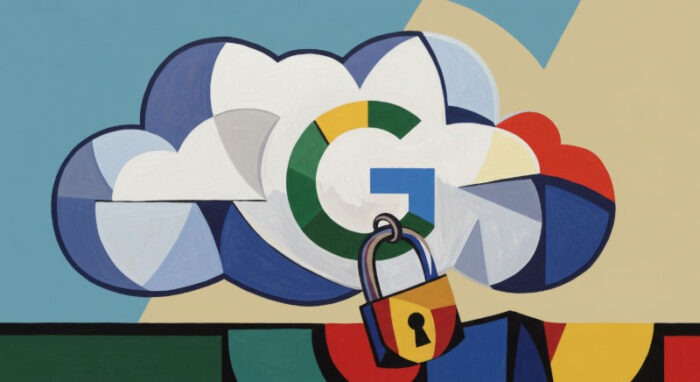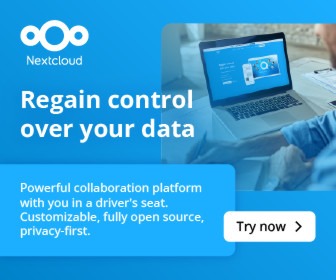Our Marco Fioretti shares his thoughts on Google’s (and others’) bad boy behavior against Nextcloud (and others).

Sad Story #1: Did you know that back in 2012, I could teach people how to post status updates on their Facebook wall, or read their Facebook timeline… all straight from the command line!!!, or any other interface you wanted? Yes, you read that right. Back then, everybody could connect with their relatives and friends who would only use Facebook, without being forced every single time to log into Facebook where they would be flooded with advertising, fake facts, and other stress-inducing “news.”
Less than one year after that, however, that tutorial became completely useless. Why? Because Facebook shut down the API in order to jail all its users, and no politician worldwide even pretended to scold them, assuming they noticed.
Sad Story #2: On May 15th, 2025, Threads peasants… er, users were graciously blessed by their infinitely charitable feudal lords with permission to add up to five links to their account bios, instead of just one.
Yay? Hardly. Five is better than one, but still feels too much like a 2025 version of “640K ought to be enough for anybody,” doesn’t it? To add insult to injury, this concession is called by Meta a “More Personalized Experience That You Control”.
Sad Story #3 (the most important of them all): On May 13th, 2025, Nextcloud, The Register, LWN, and Ars Technica came together to tell everybody about another abuse. Sometime last year, Nextcloud users lost the ability to sync all of their their phone data — not just pictures and videos — with Nextcloud via the platform’s Android app. Why? Because Google decided to restrict the app and nobody could stop them.
“Despite multiple appeals since mid-2024, Google has refused to reinstate that permission, forcing Nextcloud to limit file uploads for millions of users,” Nextcloud said in a blog. More coverage of that abuse is here.
What actually Happened
By now, you have probably heard that just two days after The Register, LWN, and Ars Technica sounded the alarm, Google reinstated the permissions it had pulled from Nextcloud’s app. This may be a happy coincidence or (much more likely if you ask me) the fact that as soon as Google saw that Nextcloud had managed to make the fight public, Google chickened out. Either way, it doesn’t matter. Happy ending or not, the Nextcloud story is just the last example of a long streak of abuses of the same kind from Big Tech in general.
What Facebook did in 2013 is the same as the only shop in town that sells phone cards or postage stamps (because that’s what social media is, communication services just like those cards or stamps) but demanding that you only call your friends, write letters to them, or read their letters, from inside one specific room filled with microphones and cameras.
What Threads does with links in bios is the same as the only shop in town that sells letter paper, but only to people who agree to never mention more than five places they like whenever they write a letter on that paper.
What Google did to Nextcloud users is almost the same as the only shop in town that sells cabinets, but only to people who agree to store just pictures in them, and nothing else.
The common element in all these stories is that they should have never happened… but they did, just because they’re all digital. Any brick and mortar shop trying to restrict usage of whatever they sell as described above would go bankrupt or be regulated out of existence in one year. When exactly the same things happen to digital goods and services, our species instead lets them happen and then tolerates them, as anything digital still feels like black magic that must be accepted, because surely the cool kids who can do nothing but code know better than us.
This said, the Nextcloud sad story is the most important of them all, and not because Nextcloud is the only platform mentioned here that is fully committed to only use free and open source software. This story is the worst because Nextcloud is the only one of the three projects I mentioned that absolutely must survive and thrive. If everybody quit Facebook and Threads tomorrow, global mental health would sensibly improve. If people quit using projects like Nextcloud, however, it would be a disaster, because it’s impossible to break free from certain toxic walled gardens without projects like this. So, please use and promote Nextcloud as much as you can (and if you are still in time, join the first Nextcloud Summit on June 5.

Marco Fioretti is an aspiring polymath and idealist without illusions based in Rome, Italy. Marco met Linux, Free as in Freedom Software, and the Web pre-1.0 back in the ’90s while working as an ASIC/FPGA designer in Italy, Sweden, and Silicon Valley. This led to tech writing, including but not limited to hundreds of Free/Open Source tutorials. Over time, this odd combination of experiences has made Marco think way too much about the intersection of tech, ethics, and common sense, turning him into an independent scholar of “Human/digital studies” who yearns for a world with less, but much better, much more open and much more sensible tech than we have today.






